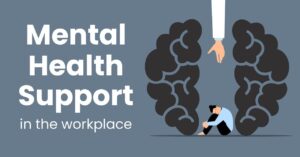A collection of intricate mental health illnesses known as eating disorders are defined by irregular eating patterns that can have detrimental effects on one physical and mental health. These illnesses afflict people of all ages and genders, and their occurrence has grown around the world. Based on credible scientific sources, this extensive essay examines the causes of eating disorders, available treatments, and ongoing issues related to them. This updated article offers a thorough examination of eating disorders, covering its intricate etiology, evidence-based
treatment approaches, and enduring difficulties in their therapeutic management. Advances in the knowledge and treatment of eating disorders provide promise for better results and an improved quality of life for those who are impacted by them through continuous research and awareness campaigns.
What factors lead to eating disorders?
Many variables influence the development of an eating disorder in patients, including neurological, psychological, social, and genetic aspects. Make an appointment for your first consultation with us right now to get started on the path to a happier, healthier life.
Genetic predisposition: Research has indicated a significant hereditary component to
eating disorders. Conditions like anorexia nervosa, which is frequently linked to inherited
features relating to metabolism, hunger regulation, and psychological flexibility, might be
influenced by genetic predisposition.
Psychological factors: Eating disorders are more common in people who have low self-
esteem, perfectionism, and a skewed self-image. Unhealthy eating habits are largely initiated
and maintained by the rigid pursuit of an ideal body image, which is made worse by societal
pressures and media representations of thinness.
sociocultural influences: Attitudes about eating and body image are greatly influenced by
the social foundations and cultural expectations surrounding physical beauty and weight. In addition to encouraging bad dietary habits, the promotion of thinness as a symbol of beauty might put vulnerable people at risk for developing nutritional issues. The etiology of eating disorders is generally associated with imbalances in neurotransmitters, such as those in the dopamine and serotonin pathways. In addition to controlling emotions and mood, these neurotransmitters also affect hunger and fullness, which can lead to disordered eating patterns like binge eating disorder.
Psychological pressures and significant life changes: Eating disorders may develop as coping methods in response to significant life changes, such as relocating to a college or changing jobs. Individuals may turn to poor eating habits as a coping mechanism for stressful situations due to emotional stress or traumatic experiences.
Eating disorder classification: kinds and diagnostic standards A range of illnesses are
grouped together as eating disorders, and each has unique clinical characteristics and diagnostic standards.
Known classes consist of: The symptoms of anorexia nervosa include extreme calorie
restriction, a crippling dread of gaining weight, and a warped sense of oneself. Because of its aberrant weight management practices and dietary inadequacies, anorexia nervosa offers serious health hazards.
The hallmarks of bulimia nervosa: are frequent episodes of binge eating that are followed by compensatory actions like self-inflicted vomiting, excessive exercise, or inappropriate laxative usage. The hallmark of bulimia nervosa is frequently recurrent binge behavior meant to allay feelings of shame or guilt related to compulsive eating. Recurrent periods of compulsive eating without coping mechanisms are referred to as binge eating
disorder. When binge eating occurs, people with binge eating disorder feel as though they are losing control and are losing their weight. If this disorder is not addressed, binge eating may also lead to obesity and other metabolic problems.
Other eating disorders: These comprise aberrant signs of disordered eating patterns that don’t fit into any particular eating disorder diagnostic parameters. This category comprises ailments marked by extreme pain or debility, necessitating medical attention and action.
How is an eating disorder treated?
combining medical and psychosocial therapies A multifaceted therapy approach that is customized to the needs and clinical symptoms of the individual is necessary for the efficient management of an eating disorder. Get in touch with us right now to arrange your initial appointment and begin receiving efficient therapy for a healthier life. Important elements of all-encompassing treatment plans consist of:
Psychotherapy: The cornerstone of psychological interventions for eating disorders is still cognitive behavioral therapy, which focuses on recognizing and changing aberrant beliefs and actions associated with unhealthful eating. Cognitive-behavioral therapies give patients coping mechanisms and approaches to challenge false assumptions about their bodies and eating
disorders.
Nutritional Advice: Licensed dietitians work with patients to create individualized meal plans that support a healthy diet and positive attitudes about food. The goal of nutritional guidance is to restore the metabolic balance that has been upset by poor eating habits and repair nutritional deficits.
Med monitoring and medication therapy: Heart function, electrolyte balance, and hormone metabolism are just a few of the physical health indicators that require routine medical exams. To handle related psychological symptoms and aid in the eating disorder recovery, a doctor may recommend medication treatment, such as mood suppressants or antidepressants.
Support from supporting networks and group therapy: During the healing process, people receive validation and a sense of camaraderie from these resources. In order to sustain long-term recovery, group sessions are a crucial procedure that offer chances for experience sharing, mutual support, and the development of interpersonal skills. Family-based treatment may be suggested in situations of eating disorders in children or teenagers so that caregivers can assist with their nutritional rehabilitation and psychological health. In order to restore the healthy dynamic of the family, family therapy places a strong emphasis on parents’ involvement in behavioral monitoring, nutritional planning, and therapeutic interventions.
Intractable difficulties managing eating disorders: Numerous obstacles still face
clinical practice today, even with improvements in treatment techniques and raised awareness of eating disorders:
Underdiagnosis and treatment inequities: Stigma, misinformation, or limited access to healthcare resources prevent many people with eating disorders from receiving a prompt diagnosis and specialist treatment. For unhealthy eating habits to be stopped in their tracks and the health risks they pose to be reduced, early intervention is essential.
Complexity of co-occurring disorders: Psychological diseases like depression, anxiety disorders, and substance use disorders frequently co-occur with eating disorders. It takes a comprehensive approach to therapy that combines specialized eating disorder interventions with psychiatric care to manage comorbidity.
Long-term health effects and health complications: Life-threatening conditions such as heart arrhythmias, electrolyte imbalances, or gastrointestinal issues can result from severe instances of anorexia nervosa and bulimia nervosa. Even with continuous treatment measures, chronic dietary deficiencies and disturbances of metabolic balance pose a continuous risk to health. Recurrence of harmful eating behaviors, typically brought on by psychological reasons or personal triggers, indicates the long-term effects of an eating disorder and should be
prevented.
The key components of successful relapse prevention programs include continuing therapy support and adaptive mechanisms that help patients keep an eye on their eating habits and mental state.
Novel methods to therapy and cutting-edge research: New treatments for eating disorders are constantly being developed thanks to research on the nervous system and evidence-based therapies. Treatment results and sustained recovery are expected to be improved by integrative models of care that incorporate mindfulness-based therapies or neurohemal rehabilitation.
Recommendations for managing eating disorders: Encouraging optimism and fortitude eating disorder are, in the end, intricate displays of psychological anguish and physiological dysregulation, necessitating compassionate and customized therapy methods.
People who suffer from eating disorders can start along the path to a full recovery and a return to their normal life by addressing the etiological factors, encouraging early intervention, and strengthening multidisciplinary collaboration among professionals in the medical field.
Websites related to the article
British Psychological Society: https://www.bps.org.uk/
National Health Service (NHS): https://www.nhs.uk/
American Psychological Association (APA): https://www.apa.org/
Britmed Healthcare: https://britmedhealthcare.co.uk/
Nightingale Hospital: https://www.nightingalehospital.co.uk/




